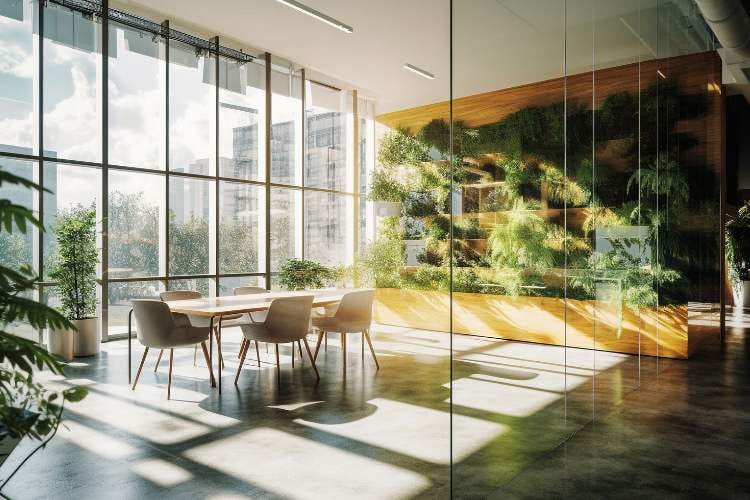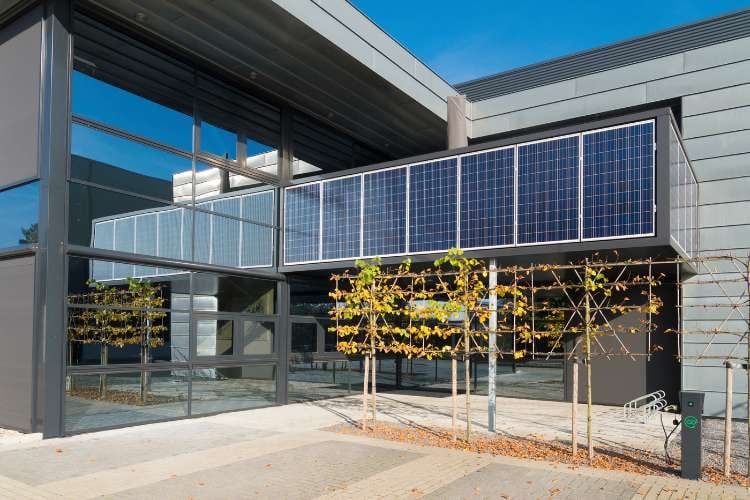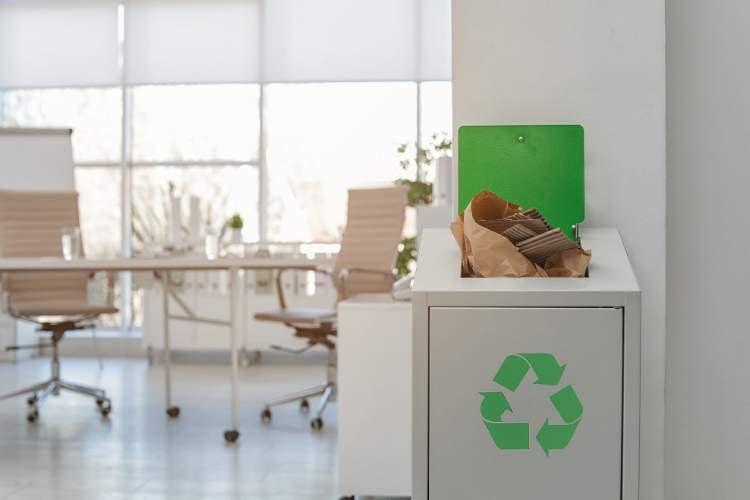The work of facilities managers is critical when it comes to realising sustainability in buildings and organisations. Find out what this looks like here.
What does Sustainable Facilities Management Look Like?
The 9th of May marked World FM Day, a significant event where industry professionals came together to discuss the future of facilities management (FM).
Among the many topics that dominated the conversation was the intersection of sustainability and FM, particularly the concept of net-zero. David Stevens, Vice Chair of the CIBSE Facilities Management Group and Director of Estates, Facilities & Capital Development at the East London NHS Foundation Trust, shed light on the impact of facilities managers on sustainability in his Spotlight interview:
“Facilities managers have the biggest part to play in net-zero because they need to be engaged with the construction all the way through that process, so they have a real input into the designs and standards. FMs are not just involved at the end of the process, and one of the things that I advocate for is that all construction teams should have facilities managers appointed to them."
Defining sustainable facilities management
Building on the discussions that arose around World FM Day, we unpack what sustainable facilities management looks like today.
Sustainable facilities management: What it means for the environment and your business
Sustainable facilities management can be best understood as the practice of efficiently managing buildings and assets in a manner that minimises environmental impact, maximises resource efficiency, and promotes long-term sustainability.
It involves a holistic approach that considers the entire lifecycle of a facility, from design and construction to operation and maintenance.

Facilities management and sustainability:
The interplay between facilities management and sustainability
David Stevens’ insights highlight the crucial role that facilities managers (FMs) play in achieving sustainability goals. FMs have the opportunity to influence the design and construction process, ensuring sustainability is embedded from the outset. By actively engaging throughout the construction process, FMs can provide valuable input into designs and standards that promote sustainability. This collaboration between FMs and construction teams allows for engineering and soft FM perspectives to contribute to buildings that perform better from an operational and environmental standpoint.
Furthermore, sustainable FM encompasses energy management strategies that optimise resource consumption. FMs are responsible for monitoring and controlling energy usage, implementing renewable energy sources, and leveraging smart technologies for enhanced efficiency. Through their active management of energy consumption, FMs can significantly reduce greenhouse gas emissions, contributing to the overall sustainability goals of an organisation.
Waste reduction and recycling are also essential aspects of sustainable facilities management. FMs can implement comprehensive waste management programs that promote recycling, composting, and responsible disposal practices. By minimising waste sent to landfills, FMs can significantly reduce the environmental impact of facilities and contribute to the circular economy.
Additionally, FMs extend their sustainability efforts to the entire supply chain. By collaborating with suppliers who prioritise sustainable practices, FMs ensure that the products and services procured align with environmental responsibility. Selecting environmentally friendly cleaning products, energy-efficient equipment, and sustainable materials for maintenance and renovations further enhances the sustainability of facilities.
The role of technology in sustainable FM
To achieve sustainable FM goals effectively, advanced technology solutions such as facilities management software like mpro5’s are invaluable. These software tools empower FM teams to monitor, analyse, and optimise resource consumption. Leveraging IoT-enabled sensors and smart building systems, FMs gain real-time insights into energy usage, water consumption, air quality, footfall and site usage, and other critical environmental factors. This data enables FMs to identify areas for improvement, track progress towards sustainability goals, and make informed decisions to optimise resource efficiency.
Furthermore, technology streamlines communication and collaboration within FM teams, ensuring smooth operations and effective maintenance. Mobile apps and cloud-based platforms like mpro5 facilitate real-time reporting, task management, and asset tracking. By digitising FM operations, organisations can reduce paper waste, enhance efficiency, and improve overall productivity, all contributing to the sustainability of FM practices.
The advantages of sustainable facilities management for your business
Implementing sustainable FM practices brings a multitude of benefits. Firstly, it helps organisations reduce operational costs by optimising energy and resource consumption. Energy-efficient systems, waste reduction initiatives, and smart technologies lead to long-term financial savings, enhancing the bottom line while promoting environmental responsibility.
Sustainable FM also improves the reputation of organisations. In today's socially conscious world, customers, employees, and stakeholders increasingly prioritise sustainability when choosing partners and providers. By showcasing a commitment to sustainable practices, businesses can attract environmentally conscious clientele, improve employee satisfaction, and strengthen their brand image.

The future of sustainable facilities management
Sustainable facilities management: Paving the way for a greener future
Sustainable facilities management is an essential component of creating a more environmentally responsible future. FMs, as David Stevens highlights, play a crucial role in achieving net-zero goals. By actively engaging in the design and construction process, FMs contribute to the overall performance and sustainability of buildings. Sustainable FM practices, including energy management, waste reduction, and responsible supply chain management, enable organisations to minimise their environmental impact while maximising resource efficiency.
Leveraging advanced technologies like mpro5’s facilities management software empowers FM professionals to monitor, analyse, and optimise resource usage. This digital transformation streamlines operations, enhances productivity, and drives the transition towards sustainable facilities management. By embracing sustainability, organisations can reduce costs, enhance their reputation, and contribute to a greener future for generations to come.
We are passionate about empowering organisations to embrace sustainable FM practices through our cutting-edge facilities management software.
Whether you are exploring the possibilities or seeking guidance on the most effective solutions for your specific needs, we invite you to contact us for a discovery call. Let’s collaborate to unlock the full potential of sustainable facilities management in your organisation. Schedule a call today and embark on your journey towards a greener and more efficient future.
Book a meeting with Konnor Baskaran.




